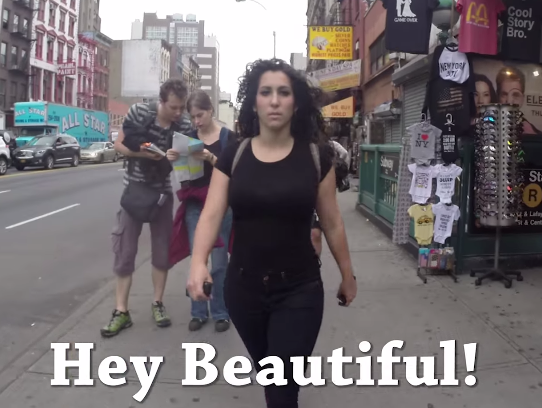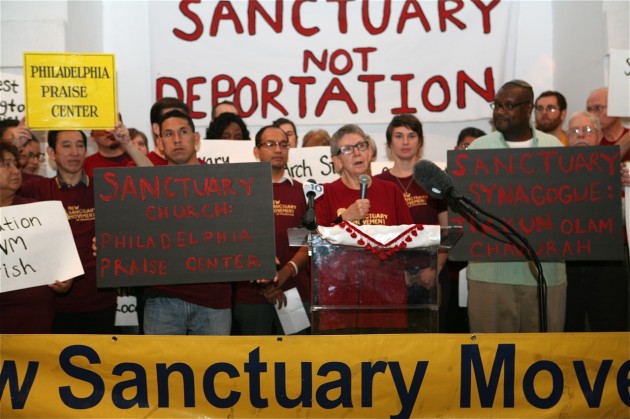Author Archives: Eleanor J. Bader
April 20, 2015 by Eleanor J. Bader
She Wants to Democratize Theater Access
Dramaturg, director and theater critic Molly Marinik loves stories, so it is no surprise that finding the best way to tell a tale is one of her passions.
As a resident director at the multi-award winning Flea Theater and Literary Manager at the Barefoot Theatre Company in New York City, Marinik has directed a host of one-act and full-length plays and has coordinated numerous staged readings. But although she finds it gratifying to steer, prune and orchestrate productions, Marinik also enjoys critiquing them, which is why, in 2007, she founded Theatre is Easy, a website devoted to reviewing the Off and Off-Off Broadway shows that mainstream media typically ignores.
“I want audiences to be smart consumers of the amazing plays in New York and have access to information to make informed choices about what to see,” she begins. “If one of our reviewers is really excited about a show that has no celebrities or glitz, we try to blast the review on social media. Obviously the advertising power of commercial productions is a lot higher than that of Off or Off-Off Broadway, so we try to even the playing field by promoting and publicizing this work.”
Theasy also tries to promote diverse voices – plays written by, starring, or directed by women, people of color, and ethnic minorities. “We’re totally independent so we don’t have to cater to anyone’s expectations,” Marinik continues. “This means we don’t need to prioritize big shows starring high-profile, Broadway actors. For example, we’ve featured the work of cultural organizations like LABA, which operates out of the 14th Street YMHA, the Irish Repertory, and the MA-YI Theater Company,” groups whose work tends to be off the radar of the New York Times, Time Out New York and Broadway.com.
- No Comments
March 24, 2015 by Eleanor J. Bader
Eco-Conscious Book Destruction
New Jersey-based visual artist, Irmari Nacht, hates waste. An avid environmentalist, Nacht says her mission is to promote the recycling and re-purposing of everyday items rather than the cavalier disposal of goods deemed useless or unwanted.
Nacht’s glee is audible as she described converting old into new. In fact, her current project, turning discarded books into sculptures, is a case in point. Since 2007, Nacht has changed novels, poetry collections, prayer books, and non-fiction into statuary. The project is called Saved, and more than 30 books in the 106-piece series will be on display in Brooklyn’s majestic public library in Grand Army Plaza until April 5th.
Her artist’s statement explains her purpose: “The artwork, using the books as a metaphor, addresses environmental concerns, change, and transformation.” But it also does more than this. The visually stunning stand-alone books suggest whimsy as well as the more serious themes of displacement, racism, anti-Semitism, and hunger.
- 1 Comment
January 29, 2015 by Eleanor J. Bader
How Safe Does She Feel Walking Down the Street?
 When 24-year-old aspiring actor Shoshana Roberts saw an ad soliciting “Female Talent for Anti Street Harassment Viral Video” on Craigslist, she immediately knew that she wanted to apply.
When 24-year-old aspiring actor Shoshana Roberts saw an ad soliciting “Female Talent for Anti Street Harassment Viral Video” on Craigslist, she immediately knew that she wanted to apply.
The date was September 12, 2014.
A brief telephone interview with Chicago filmmaker Rob Bliss of Rob Bliss Creative took place a day later, and by the end of October Bliss had captured 10 hours of footage showing Roberts walking through the five boroughs of New York City while being catcalled by dozens of men. He later edited this into a two-minute video that has now been seen by approximately 39 million people in every corner of the world.
The video was a collaboration between Bliss and Hollaback, an international, feminist, anti-street-harassment organization which, since its founding in 2011, has trained activists in 26 countries and more than 80 U.S. cities to oppose anti-woman violence and misogyny. Although Roberts wasn’t familiar with Hollaback when she answered the ad, the issues the group works on resonate deeply for her.
- No Comments
December 30, 2014 by Eleanor J. Bader
Sheltering Those at Risk—Rabbi Linda Holtzman and a Jewish Sanctuary Movement
 When Philadelphia Rabbi Linda Holtzman hears that a person has risked life and limb to cross a border into the United States, she immediately thinks of her maternal grandmother.
When Philadelphia Rabbi Linda Holtzman hears that a person has risked life and limb to cross a border into the United States, she immediately thinks of her maternal grandmother.
“She came to America early in the 20th century, before World War I,” she begins. “The rest of her siblings, five brothers and sisters, stayed in their small town in Poland. Years later, when they wanted to leave, they no longer could, and all five of them were killed by the Nazis. Today, when I hear someone say that they don’t feel safe in their homeland, I feel an imperative to do something. As a Jew, I hear the word unsafe as a call to action, a mandate to err on the side of welcome.”
Holtzman is part of Philadelphia’s New Sanctuary Movement [NSM], a growing faith-based network of religious leaders and congregations dedicated to changing an immigration system they see as badly broken. And despite recent promises by the Obama administration to go after “felons, not families,” the 120 congregations that presently comprise the NSM nationwide believe that deportations from the U.S. – 368,644 in fiscal 2013, or nearly 1100 a day – must stop.
Toward that end they not only support immigrant rights more generally, but also support efforts to shelter people who are about to be removed — a strategy predicated on the belief that Immigration officials will not enter a sacred space and forcibly take someone from safety. The strategy has led NSM members to provide sanctuary to nine undocumented immigrants, not only in Philadelphia, but also in Chicago, Denver, Portland, Oregon, and Tempe and Tucson, Arizona.
- 7 Comments
 Please wait...
Please wait...